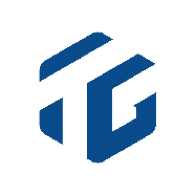As is evident in the name, the Voluntary Qualified Importer Program (VQIP), is just that—voluntary. However, participants in the program are showing that they are going above and beyond the requirements (i.e., FSMA’s Foreign Supplier Verification Program), which in the long run, is good for business and their marketing.
“VQIP is meant to be a step up—it’s almost a push for regulators to offer incentive programs for those suppliers and a way to reward good behavior,” said Melanie Neumann, executive vice president and chief financial officer of The Acheson Group. “VQIP is looking for a best-in-class supplier control program, and it’s meant to incentivize those companies who have it and can prove it.” During a recent FSMA Fridays session organized by SafetyChain, Neumann and David Acheson, MD, CEO and president of The Acheson Group, discussed the basics of VQIP and the benefits of participating in the program.
Under FSMA, FDA is required to develop a voluntary and fee-based program that enables expedited review of foods from importers that have achieved specific criteria related to supply chain safety and security. The agency released the draft guidance in June. The annual fee to participate in the program is estimated to cost $16,400, and FDA has also requested comment as to whether this fee will pose a burden on smaller businesses. Applications are filed online.
To qualify for participation in the program, companies must meet several requirements. Businesses must:
- Have a record of importing foods into the United States for at least three years
- Have a Data Universal Numbering System (DUNS) number
- Use a paperless filer/broker that has received a pass rating from its FDA filer evaluation
- Have a quality assurance program and submit documentation of assurance program
- Be compliant with FSVP
Businesses must not:
- Have any imported food that is subject to either an import alert or Class I recall
- Have any ongoing FDA administrative or judicial history of significant noncompliance
- Be subject to any safety or security customs and border protection penalties and sanctions
One of the most important elements of the eligibility requirements is proof of a quality assurance program, according to Acheson. He highlighted several components that companies must have as part of their quality assurance program, including:
- Corporate policy quality statements, relating to food safety and security explaining how a company is controlling risk in its supply chain
- An organization chart (or a written explanation of management structure)
- Policies and procedures that will be implemented to ensure a company’s system is producing safe food
- Written description of the food defense system
- Documentation of a company’s experience in employee training for those responsible for implementing the quality assurance program
- Procedures for assuring the program is current and appropriately implemented
- Written procedures for maintaining records relating to structures and process and procedures of the program
- References to sources used to develop the quality assurance program
“The message here is that FDA is saying we really want to make sure you have a robust system,” said Acheson. He added that although businesses must apply each year, once the initial heavily lifting is done the first year (and assuming the company has maintained the required standards), reapplication should not be as onerous.
Once a company has been accepted into the program, it can expect expedited entry of imported foods into the United States and limited examination or sampling of VQUO foods (unless there is a “for cause” situation).
“If you have qualified for this program, you’ve really got the FDA gold star,” said Acheson. “That’s a marketable item. If you can say your product is VQIP approved, it’s a leverageable opportunity for the importer for their customers.”




